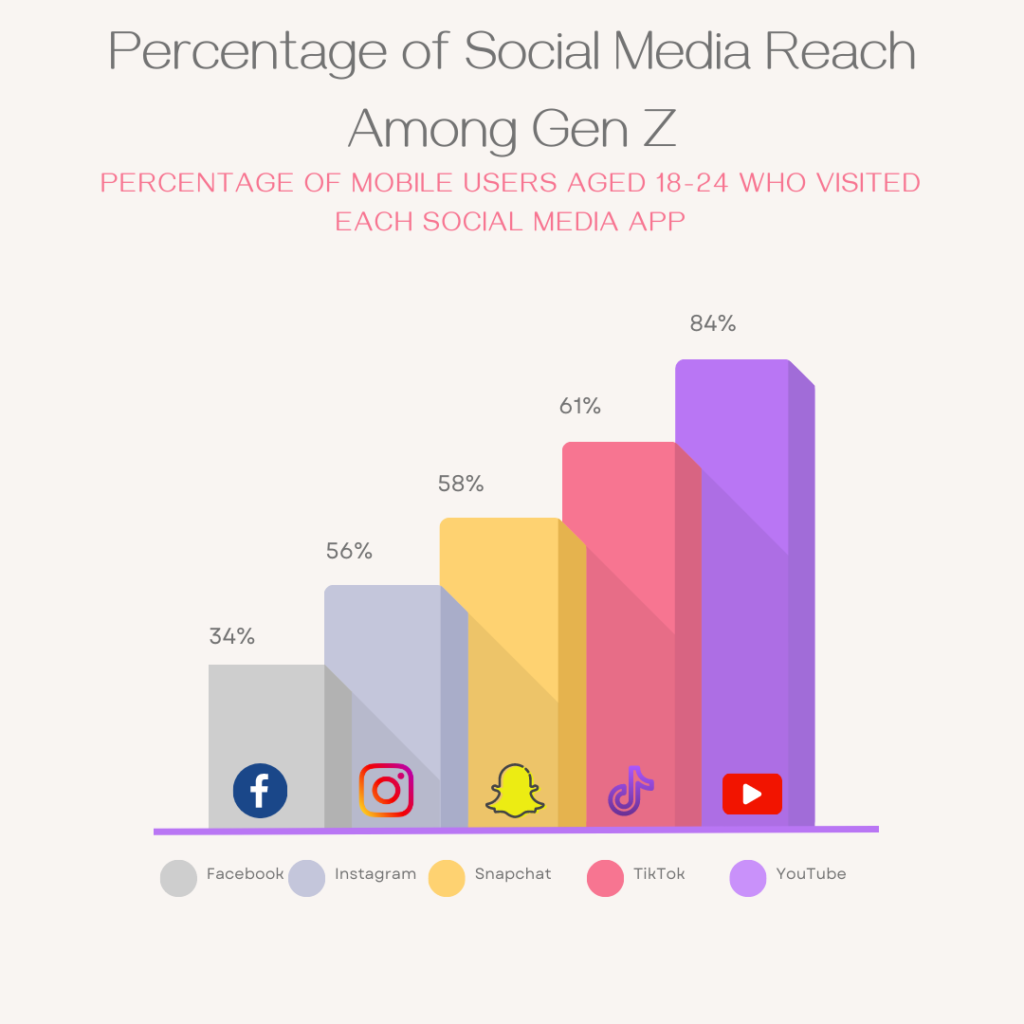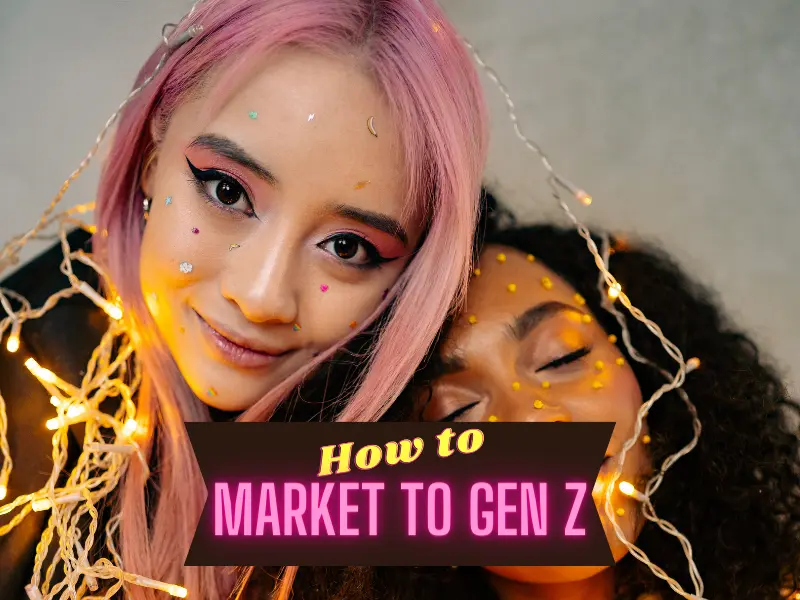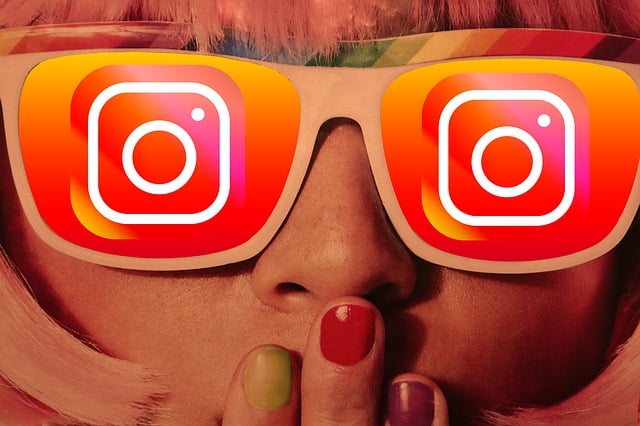In today’s rapidly evolving market landscape, understanding and effectively market to Gen Z (Generation Z) consumers has become a priority for brands. This comprehensive guide unpacks Gen Z’s characteristics, preferences, and values, providing actionable insights for crafting successful marketing campaigns.
We will cover the below topics. If you want to learn about a specific part of this article, click on one of the links, and you’ll be taken to that section.
Ready to learn the best way to market to Gen Z? Let’s go and increase those sales!
And remember, if you like what I wrote, please share this article with your friends and colleagues.
Table of Contents:
1. Understanding Gen Z: Who Are They and Why Are They Important?
2. What’s Important to Gen Zs?
3. The Best Platforms for Reaching Gen Z
4. Social Media Marketing Strategies for Gen Z
6. Influencer Marketing and Gen Z
7. Content Creation and Storytelling for Gen Z
8. Tips for Engaging and Retaining Gen Z Customers
9. Case Studies: Successful Brands Targeting Gen Z
10. Conclusion: Key Takeaways for Marketing to Gen Z
Understanding Gen Z: Who are they, and why are they important?
Before we discuss how to market to Gen Z, let’s first understand this demographic group.
Gen Z, also known as Generation Z, refers to individuals born between the mid-1990s and the early 2010s. As the newest generation to enter the consumer market, they have become a significant focus for marketers. Understanding who Gen Z is and why they are important is crucial for any successful marketing strategy.
Gen Z consumers are known for their digital savviness and ability to adapt quickly to emerging technologies. They have grown up in a world where smartphones, social media, and instant access to information are the norm. This tech-native generation has a unique set of characteristics that sets them apart from previous generations.
One notable characteristic of Gen Z is their desire for authenticity and transparency. They value brands that are genuine and socially responsible. Gen Z is also highly diverse, both racially and culturally, and they appreciate brands that embrace diversity and inclusivity. Understanding these characteristics is key to effectively marketing to Gen Z.
What’s important to Gen Zs?
To successfully market to Gen Z, it is essential to understand what is important to them. Gen Z values experiences over material possessions. They are more interested in creating memories and engaging in meaningful activities rather than collecting physical goods. This shift in priorities has significant implications for marketers.
Gen Z is also highly connected and values social connections. They rely on social media platforms to stay connected with friends and family, as well as to discover new brands and products. This digital connectivity has made them more susceptible to the influence of their peers and online communities. To resonate with Gen Z, brands need to understand the power of social connections and leverage them in their marketing strategies.
Finally, Gen Z is passionate about social and environmental issues. They are more likely to support brands that align with their values and actively contribute to the causes they care about. Demonstrating a commitment to social responsibility and sustainability can help brands gain the loyalty and trust of Gen Z consumers.
The best way to market to Gen Z
When it comes to market to Gen Z, social media platforms are the most effective channels. Instagram, TikTok, and Snapchat are particularly popular among this generation. These platforms allow brands to create visually appealing content and engage with Gen Z in a more authentic and interactive way.
Let’s review the best way to market to Gen Z. ComScore did some amazing research on Gen Zs. The graph below shows Social Media reach among Gen Z.

Snapchat
Gen Z is a privacy-conscious generation, and Snapchat’s ephemeral messaging format appeals to their desire to share without leaving a lasting record. Snapchat is also a great platform for creativity, with its unique filters and overlays. When marketing to Gen Z on Snapchat, be authentic, light-hearted, and inviting. Bring your audience behind the scenes and invite them to engage with your content in creative ways.
TikTok
TikTok is a platform that is all about fun and authenticity. Gen Z loves the platform’s short-form videos, which are often humorous or creative. When marketing to Gen Z on TikTok, focus on creating content that is fun, engaging, and relatable. Use trending hashtags and challenges to get your content seen by more people. You can also partner with influencers who have a following of Gen Z users.
Instagram, with its emphasis on visual content, is an ideal platform for showcasing products and creating a strong brand identity. Influencer marketing is also highly effective on Instagram, as Gen Z consumers trust the recommendations of influencers they follow. TikTok, on the other hand, offers brands the opportunity to create short, engaging videos that can quickly go viral and reach a wide audience. Snapchat, known for its disappearing content, allows brands to create a sense of urgency and exclusivity, which resonates well with Gen Z.
YouTube
YouTube is a platform that is all about video. Gen Z loves the platform’s short-form and long-form videos, which can be humorous, creative, or educational. When marketing to Gen Z on YouTube, focus on creating content that is engaging, relatable, and informative. Use trending hashtags and challenges to get your content seen by more people. You can also partner with influencers who have a following of Gen Z users.
In addition to the above social media platforms, brands should also consider leveraging video streaming platforms like Twitch. Gen Z consumes a significant amount of video content, and this platform provides an excellent opportunity for brands to reach this audience. By creating informative and entertaining videos, brands can capture the attention of Gen Z and establish a loyal following.
Social media marketing strategies for Gen Z
When it comes to marketing to Gen Z on social media, there are several strategies that can be effective. First, brands should focus on creating visually appealing and shareable content. Gen Z is highly visual and is more likely to engage with content that is aesthetically pleasing. This can include high-quality images, videos, and graphics that align with the brand’s identity.
Second, brands should aim to build a community and foster engagement. Gen Z values authenticity and is more likely to engage with brands that actively respond to their comments and messages. Encouraging user-generated content and running contests or challenges can also help create a sense of community and increase brand loyalty among Gen Z consumers.
Third, brands should leverage influencer marketing. Gen Z trusts the recommendations of influencers they follow, making influencer partnerships an effective way to reach this audience. Collaborating with influencers who align with the brand’s values and have a genuine connection with their followers can significantly impact Gen Z’s purchasing decisions.
Best types of Paid Ads to market to Gen Z
When it comes to paid advertising, Gen Z responds best to native ads and sponsored content. Native ads seamlessly blend into the user’s browsing experience and are less intrusive compared to traditional banner ads. This subtlety makes them more effective in capturing the attention of Gen Z consumers.
Sponsored content, such as branded articles or videos, is also highly effective in reaching Gen Z. This type of content provides value to the audience while subtly promoting the brand. Gen Z appreciates informative and entertaining content, and sponsored content that aligns with their interests can generate a positive response.
It’s important to note that Gen Z is generally averse to interruptive and intrusive ads. Pop-up ads, autoplay videos with sound, and other disruptive formats are likely to be ignored or even actively avoided by this generation. Brands should focus on creating ads that seamlessly integrate with the user experience and provide value to Gen Z consumers.
Influencer Marketing and Gen Z
Influencer marketing is a powerful strategy for reaching Gen Z consumers. As mentioned earlier, Gen Z values authenticity and trusts the recommendations of influencers they follow. Collaborating with influencers who have a genuine connection with their audience can significantly impact Gen Z’s perception of a brand.
When selecting influencers for an influencer marketing campaign, it is essential to consider factors such as relevance, engagement, and authenticity. The influencer should align with the brand’s values and have a genuine connection with their followers. Micro-influencers, who have a smaller but highly engaged audience, can be particularly effective in reaching Gen Z.
In addition to collaborating with influencers, brands should also encourage user-generated content. This can involve creating branded hashtags and challenges that encourage Gen Z consumers to create content related to the brand. This not only increases engagement but also helps to build a community of brand advocates among Gen Z.
If you want to learn more about how to find and create a partnership with influencers at no cost, check out this article
Gen Z prefers seeing actual customers in promotional materials. As many as 82% trust a brand more if they use real customers in advertising, while only 26% of respondents trust a company more if they feature paid spokespeople.
Content creation and storytelling for Gen Z
Content creation and storytelling are essential for effectively marketing to Gen Z. Gen Z consumers are highly adept at filtering out irrelevant or uninteresting content, so brands need to create content that captures their attention and resonates with their values.
One effective approach is to create content that tells a story and evokes emotions. Gen Z responds well to narratives that are relatable and authentic. Brands can use storytelling to communicate their values, showcase their products or services, and connect with Gen Z on a deeper level.
Video content is particularly effective in capturing the attention of Gen Z. Short, engaging videos that are informative or entertaining have a higher chance of being shared and going viral. Brands can leverage platforms like TikTok and YouTube to create and distribute video content that resonates with Gen Z.
Tips to market to Gen Z Customers
Engaging and retaining Gen Z customers requires a proactive approach that aligns with their preferences and values. Here are a few tips to effectively engage and retain Gen Z customers:
- Be authentic and transparent: Gen Z values genuineness and appreciates brands that are transparent about their values, practices, and products.
- Embrace user-generated content: Encourage Gen Z consumers to create and share content related to your brand. This not only increases engagement but also helps to build a community of brand advocates.
- Prioritize social responsibility: Demonstrate a commitment to social and environmental issues that Gen Z cares about. This can include partnerships with nonprofit organizations, sustainable practices, and initiatives that give back to the community.
- Leverage social media for customer service: Gen Z expects prompt and personalized customer service. Utilize social media platforms to respond to their queries and address their concerns in a timely manner.
- Offer unique and personalized experiences: Gen Z values experiences over material possessions. Create personalized experiences that resonate with their interests and preferences.
Case studies: Successful brands market to Gen Z
Several brands successfully marketed to Gen Z and managed to build a strong following among this generation. One such example is Glossier, a beauty brand that has gained popularity by leveraging social media and influencer marketing. Glossier’s minimalist aesthetic and focus on natural beauty align well with Gen Z’s values.
Another successful brand targeting Gen Z is Adidas. Through collaborations with popular influencers and celebrities, as well as innovative marketing campaigns, Adidas has successfully positioned itself as a brand that understands and embraces the Gen Z culture.
Conclusion: Key takeaways to market to Gen Z
to Gen Z requires a deep understanding of their characteristics, values, and preferences. By leveraging the right platforms, adopting effective strategies, and prioritizing authenticity and transparency, brands can successfully market to Gen Z customers. Social media platforms, influencer marketing, and content creation are powerful tools that can help brands master the art of marketing to Gen Z.
Remember to prioritize experiences over material possessions, embrace social responsibility, and foster a sense of community. By following these key takeaways, brands can connect with Gen Z on a deeper level and establish long-lasting relationships with this influential generation.
CTA: Start implementing these strategies and platforms today to effectively market to Gen Z and tap into their immense purchasing power. Remember, understanding and adapting to the unique characteristics of Gen Z is essential for any successful marketing campaign.




